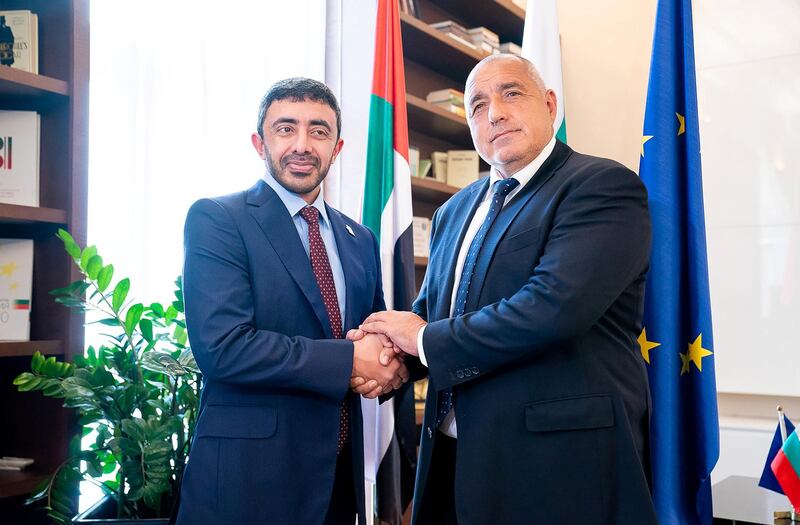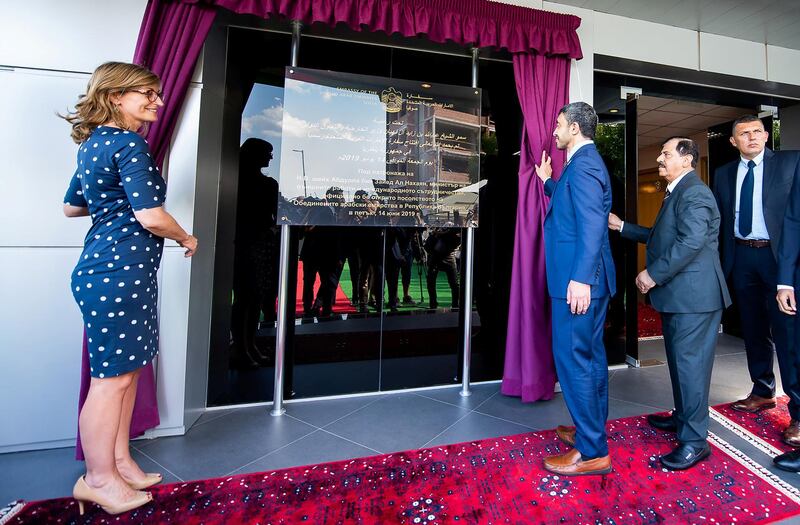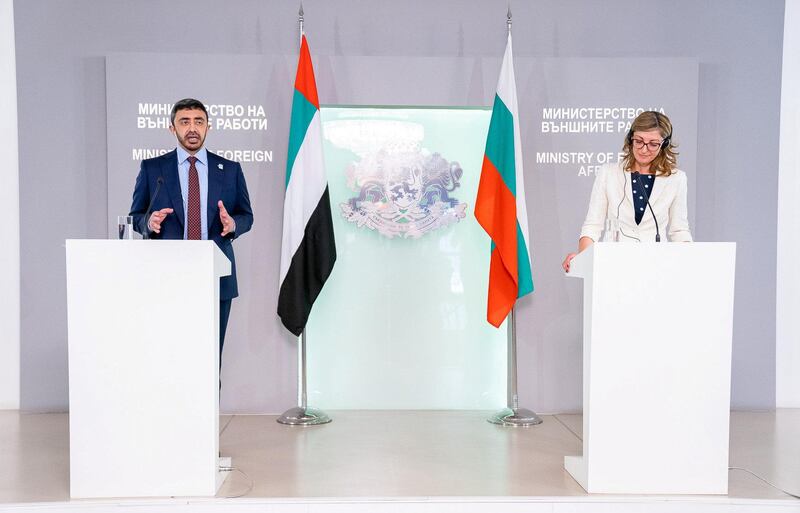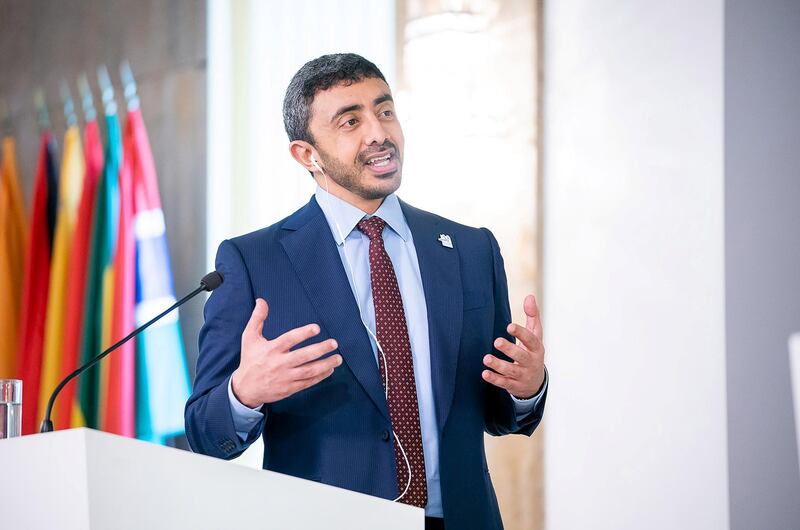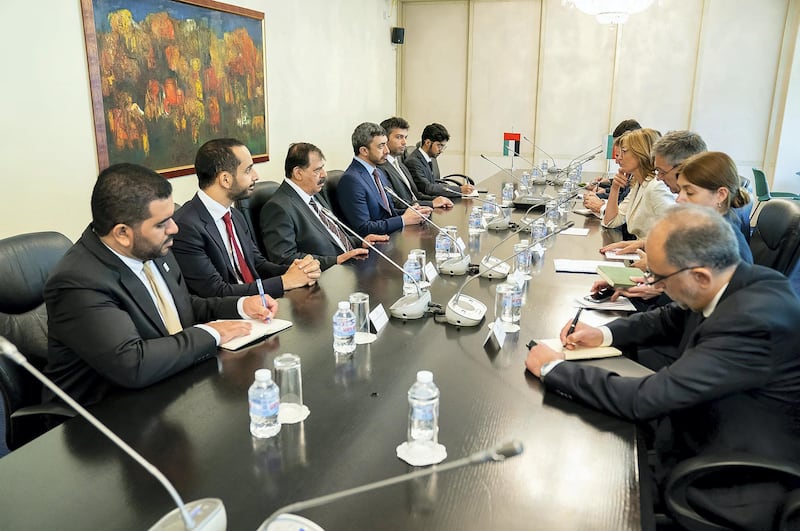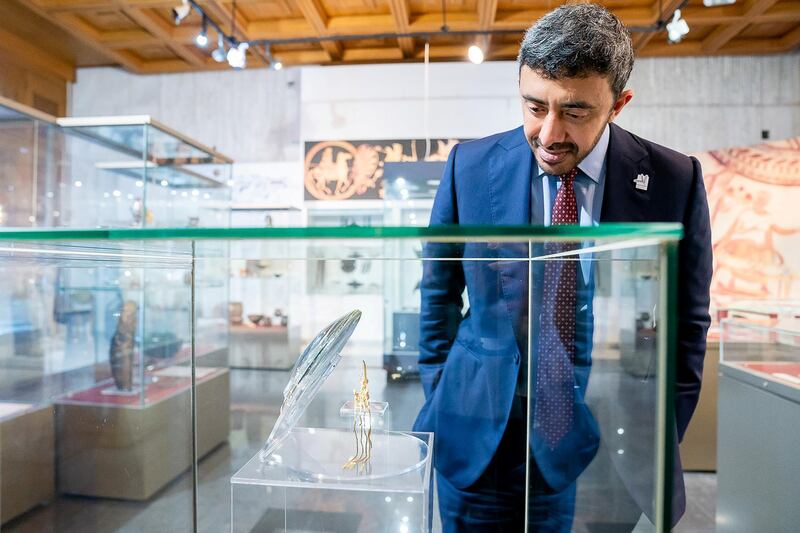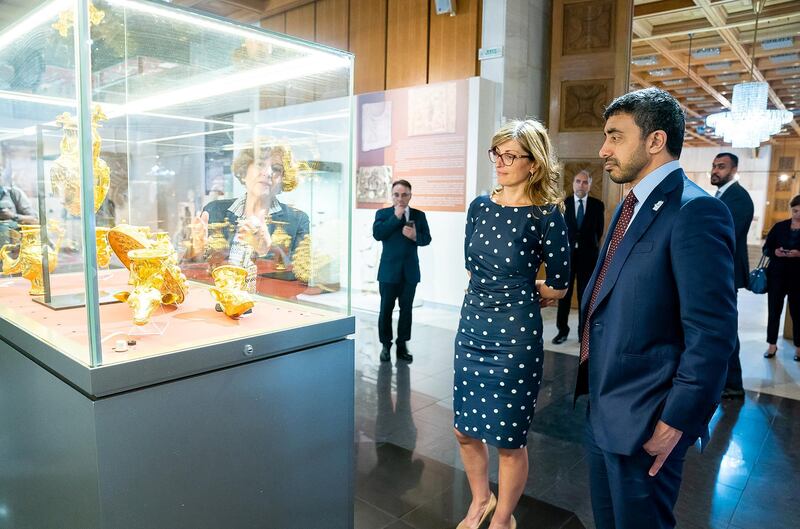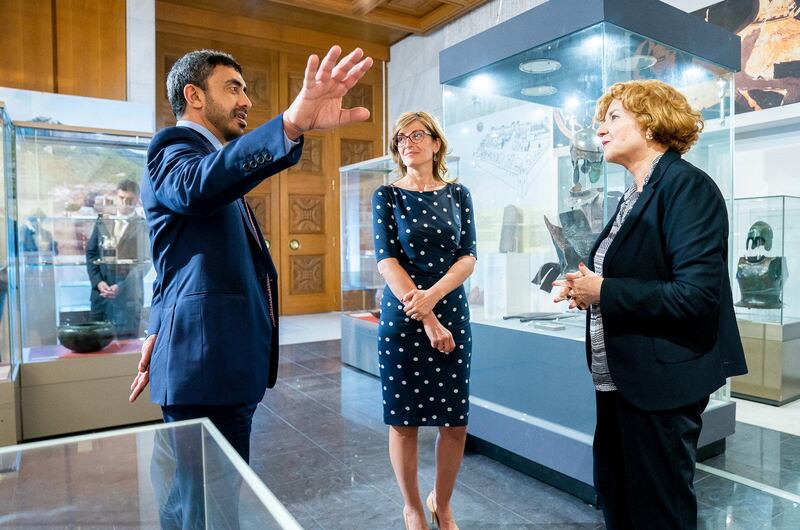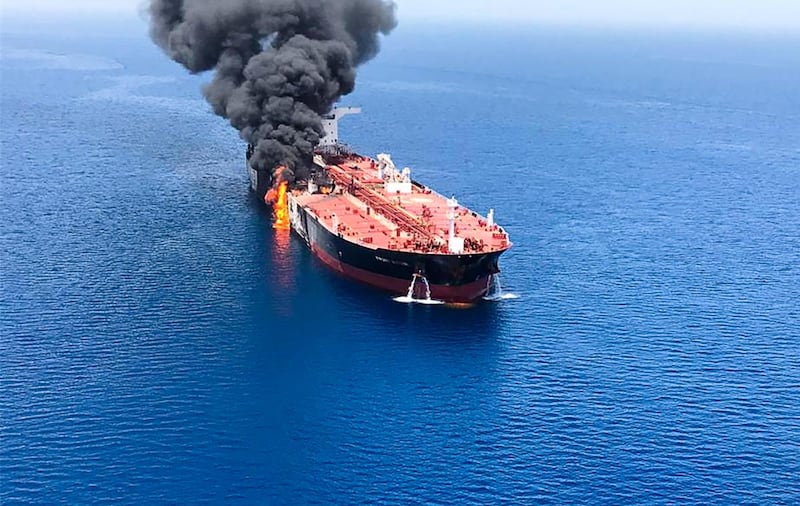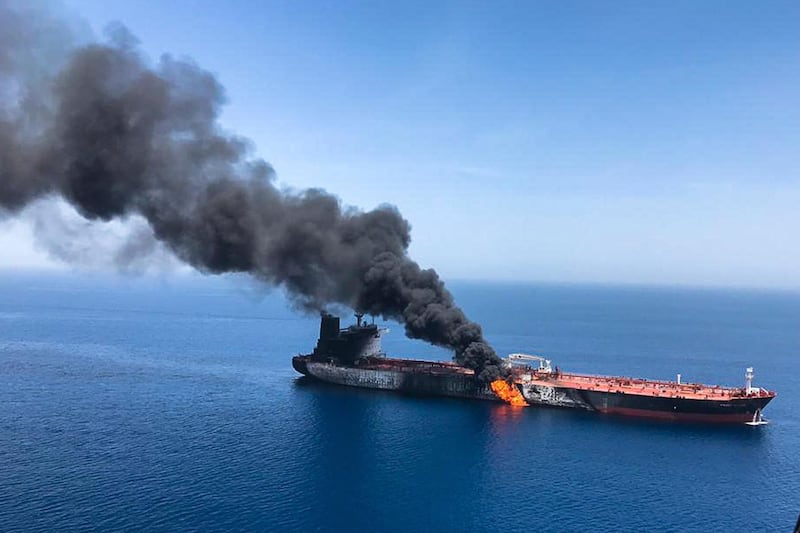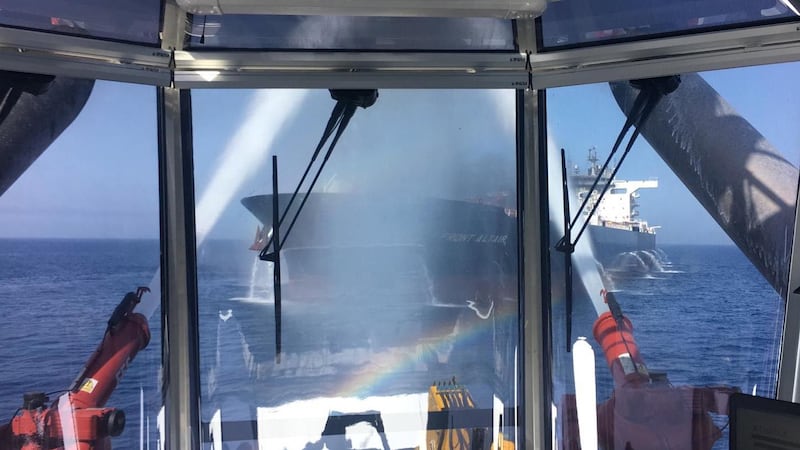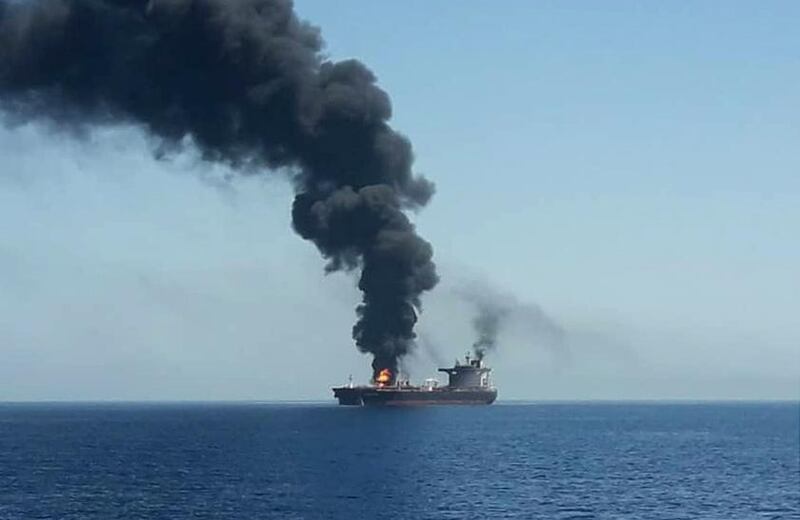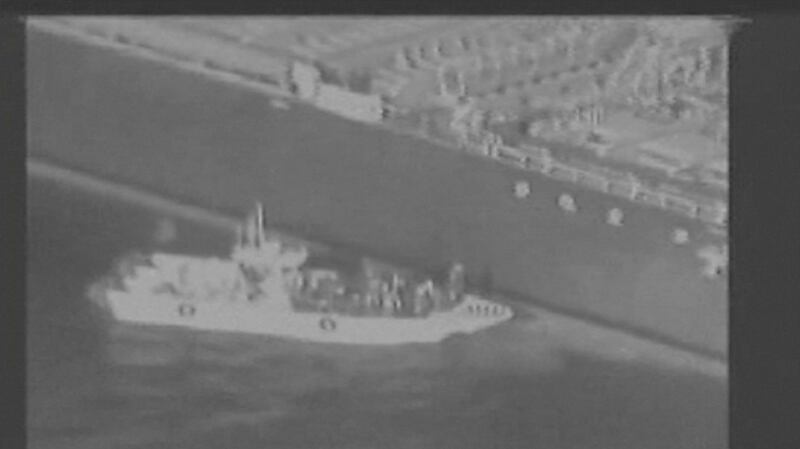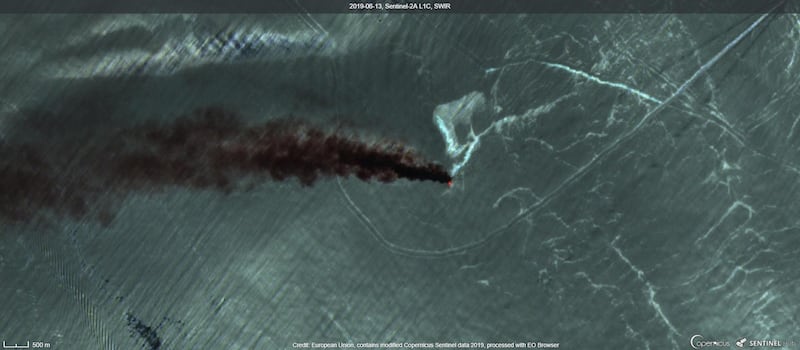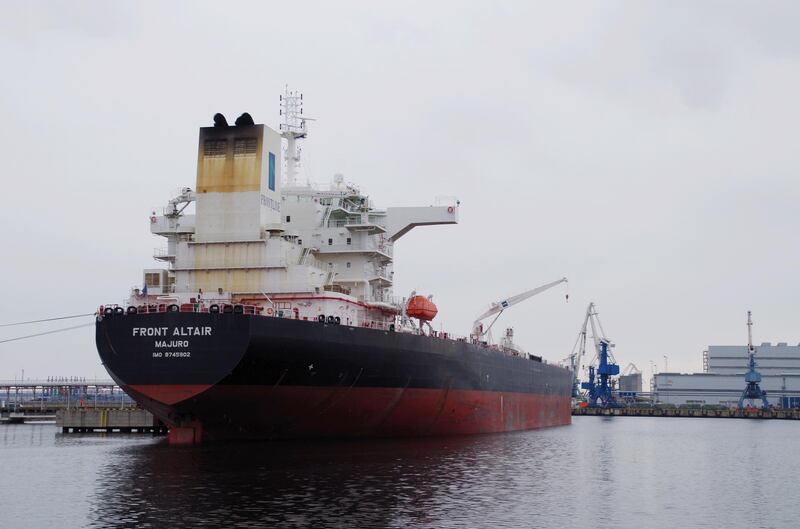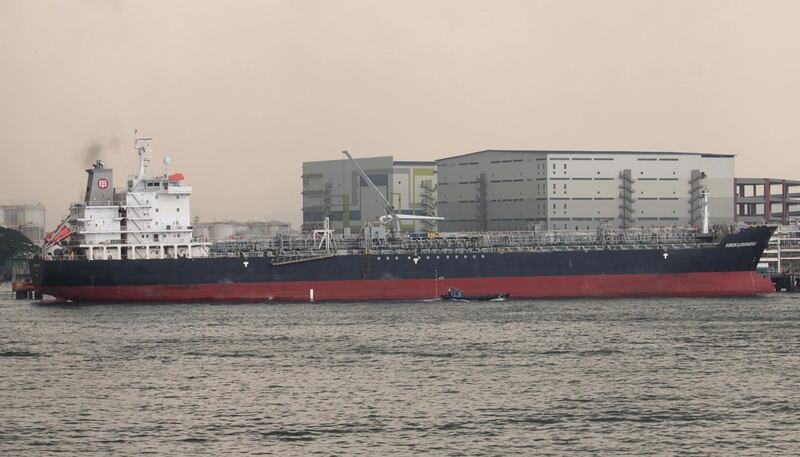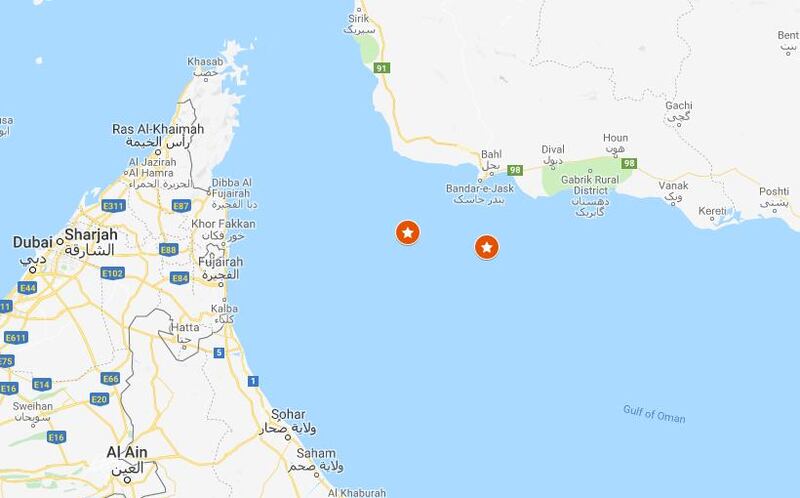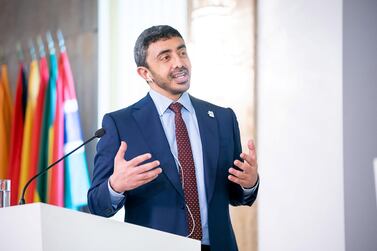A joint effort is needed to spare the region from escalation, Sheikh Abdullah bin Zayed said on Saturday after a second attack on oil tankers in just over a month heightened fears of a new conflict.
"Real regional security and stability will only be attained when regional actors work together. Our region is the main energy supplier to the world; our safety and security is key to ensuring prosperity and stability for all," the UAE Minister of Foreign Affairs and International Co-operation said during a visit to Bulgaria.
"We must work together to spare the region from escalation, and give the voice of wisdom a chance."
The United States has accused Iranian forces of the attacks on two tankers in the Gulf of Oman on Thursday, and says Iran was also behind the explosions that sabotaged four tankers off the UAE coast on May 12. Tehran denies any involvement in the incidents, which come as tensions mount over stringent sanctions the US imposed on Iran after pulling out of the 2015 nuclear deal last year.
The US military on Friday released drone footage that it said showed an Iranian patrol boat removing an "unexploded limpet mine" from one of the tankers attacked on Thursday.
Both ships, the Norwegian-owned Front Altair and the Japanese-owned Kokuka Courageous, were being towed to UAE ports on Saturday, according to their operators. The crew of both vessels were rescued and their cargoes were intact, although a section the Altair's hull caught fire.
Saudia Arabia's Crown Prince Mohamed bin Salman has also made his first comments since the incident.
"We do not want a war in the region... But we won't hesitate to deal with any threat to our people, our sovereignty, our territorial integrity and our vital interests," he told Asharq Al Awsat.
UN Secretary General Antonio Guterres has called for independent investigation to determine who carried out the attacks. “Responsibilities need to be clearly defined. The world cannot afford a major confrontation in the Gulf,” the UN chief said after a meeting in New York with Arab League chief Ahmed Aboul Gheit on Friday.
Mr Aboul Gheit likened the situation in the Gulf to a "powder keg".
"Any wrong move might lead to ramifications that would take us back to 20 or 30 years ago, and war, so we have to be careful,” he said.
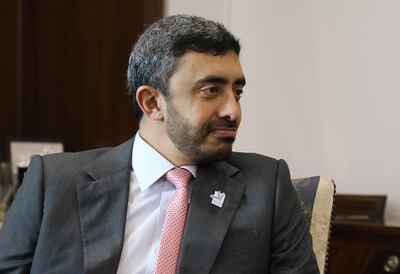
The attacks on Thursday follow a pattern of escalation since the US announced in early May that it was increasing its military presence in the region to counter an unspecified Iranian threat to its interests and allies. Drone and missile attacks claimed by Iran-backed rebels in Yemen damaged Saudi oil infrastructure last month and a civilian airport on Wednesday. On Saturday, mortar rounds were fired towards a base used by US troops in Iraq, where Iran supports powerful Shiite militias. Last month, a shell landed near the US embassy in Baghdad.
Iranian president Hassan Rouhani meanwhile warned again that said Iran would stop abiding by the nuclear pact if other parties did not work to remove the restrictions on its economy as promised under the deal.
"Obviously, Iran cannot stick to this agreement unilaterally," Mr Rouhani told meeting of Russian, Chinese and other Asian leaders in Tajikistan on Saturday.
He said Iran needed to see "positive signals" from the other signatories to the pact besides the US – Russia, China, Britain, France and Germany – without specifying what these should be or what actions Iran would take otherwise.
The UAE has criticised Iran's response to the attacks on shipping and its alleged role, with Minister of State for Foreign Affairs Dr Anwar Gargash dismissing statements by Iranian Foreign Minister Mohammad Javad Zarif as a public relations exercise.
“Every single day Iran’s Foreign Minister Zarif’s reference to team B becomes more farcical & his credibility diminishing,” Dr Gargash said on Twitter, referring to Mr Zarif's use of the term "B Team" to denote US National Security Adviser John Bolton, Israeli Prime Minister Benjamin Netanyahu, Saudi Crown Prince Mohammed bin Salman and Abu Dhabi Crown Prince Sheikh Mohamed bin Zayed.
“Public relations is no real substitute to constructive policies. De-escalation in current situation requires wise actions not empty words,” Dr Gargash said.
Speaking in Bulgaria, Sheikh Abdullah expressed regret that recent international efforts to find a solution to the crisis had failed.
"We hoped that the efforts of the Japanese Prime Minister Shinzo Abe would succeed. The German foreign minister was present a few days ago in the region, and we remain hopeful in attaining a broader framework for co-operation with Iran," he said in comments reported by the state news agency Wam.
"The P5+1 deal had two major flaws," Sheikh Abdullah said, referring to the 2015 nuclear pact. "The first being the lack of involvement with regional countries during the dialogue process. The second, not containing Iran's ballistic missiles capabilities and its interference in the internal affairs of neighbouring countries."
Sheikh Abdullah said that he and his Bulgarian counterpart Ekaterina Zaharieva had discussed the recent incidents in the Arabian Gulf and the Gulf of Oman, as well as the attacks on Saudi Arabia by Houthi militias on two pumping stations on the kingdom's East-West pipeline, and on the Abha International Airport.
"We are in a complex region that has many resources, whether gas or oil, that are necessary for the world. We want the flow of said resources to remain safe, and to ensure the stability of the global economy. We must also secure our peoples and our economies," he said.
He said evidence from the attacks on four oil tankers in the UAE's territorial waters last month showed capabilities "not present in illegal non-state actors or groups. These are disciplined processes carried out by a state. However, until now, there is insufficient evidence to point to a particular country."
The area in which the incidents took place has vital economic and geopolitical significance and interruptions like the four attacks could affect the global supply of oil, Sheikh Abdullah said, noting that there were some 184 oil and shipping vessels, among others, in the area at the time.
"This was a real threat to global maritime shipping," he said.
Meanwhile, the Front Altair's crew were flown to Dubai on Saturday aboard an Iran Air flight after being taken rescued and taken to Iran.
A report by the Norwegian insurer DNK said Iran’s navy “demanded that the crew were transferred to them” from the commercial vessel that rescued them and were taken to the Iranian port of Jask.
The crew of the Kokuka Courageous spent Thursday night aboard the destroyer USS Bainbridge before returning to their ship on Friday to help with it being towed.
